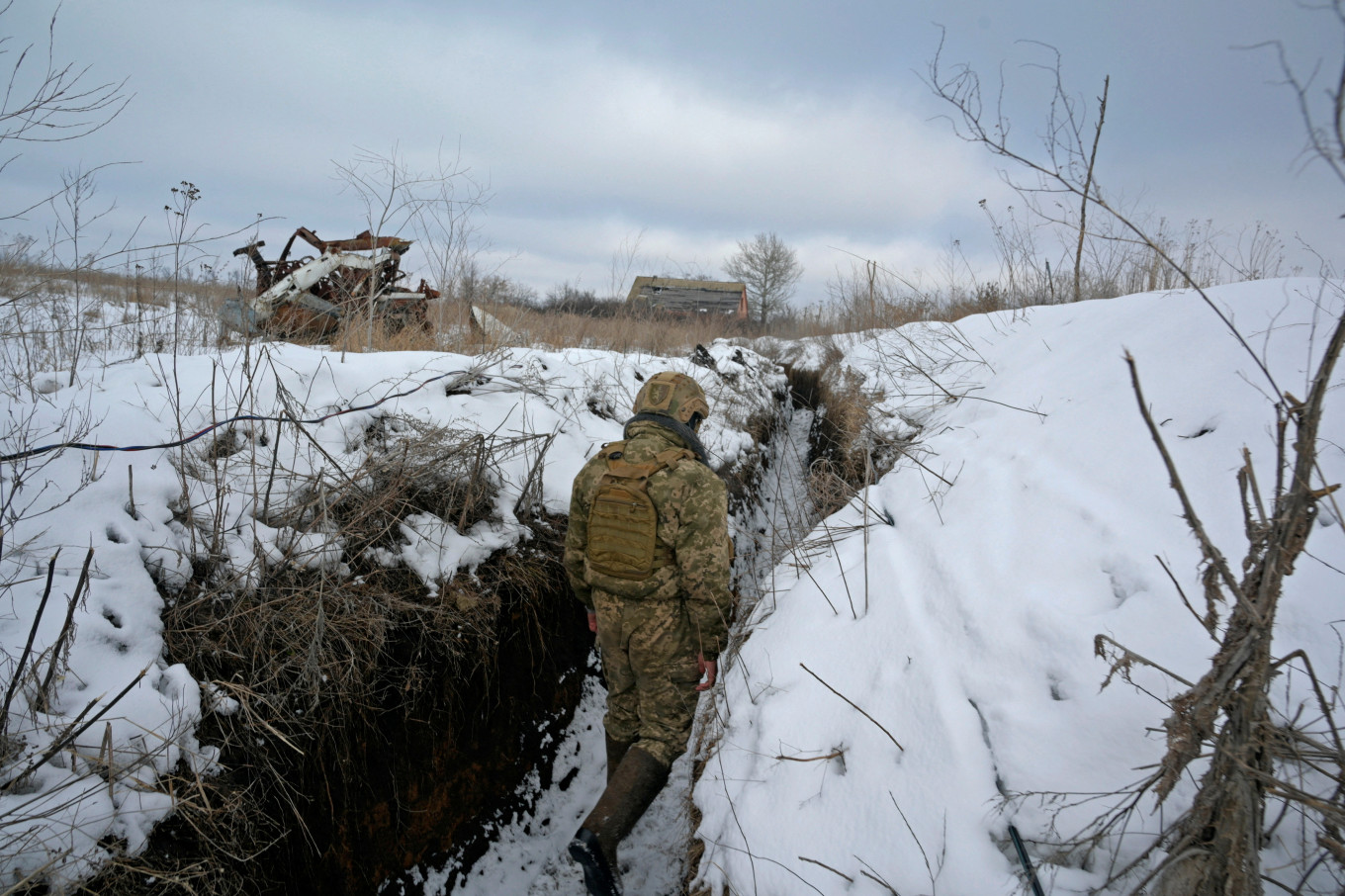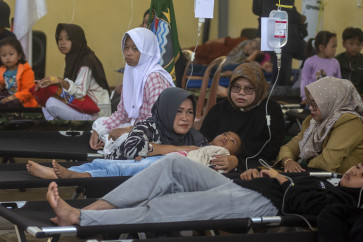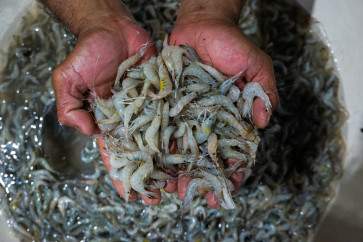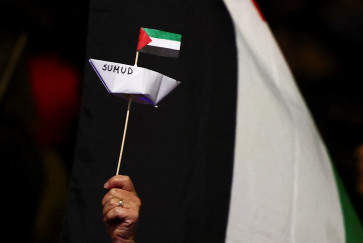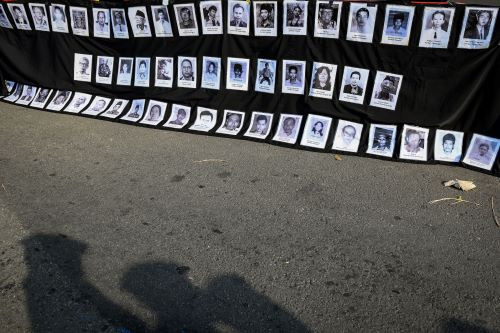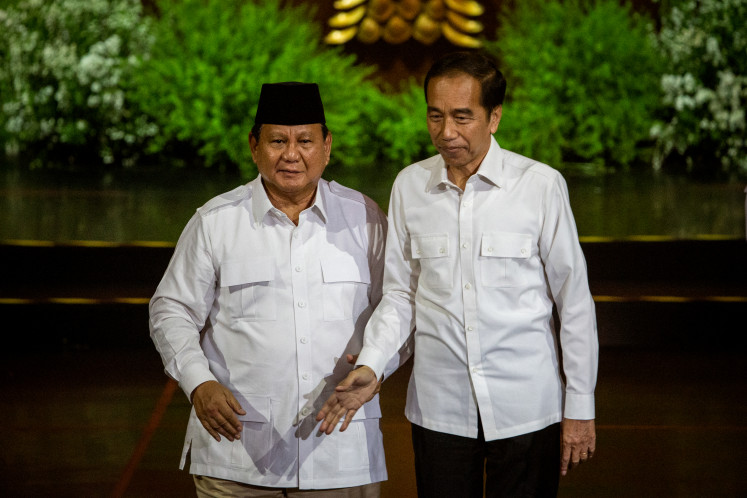Popular Reads
Top Results
Can't find what you're looking for?
View all search resultsPopular Reads
Top Results
Can't find what you're looking for?
View all search resultsThe power of geography: What the Ukraine crisis teaches us
The problem with NATO’s plans is that membership for Ukraine (and Georgia for that matter) would represent a direct assault on Russian interests.
Change text size
Gift Premium Articles
to Anyone
T
he current crisis over Ukraine reminds us of an enduring principle in international politics – the power of geography. Simply put, geography leads Russia to care much more about developments in Ukraine than the North Atlantic Treaty Organization (NATO), underlining its weaker strategic position.
And complementing this principle is the core lesson from this crisis. That is, a robust settlement of the Ukraine issue requires an agreement that satisfies the interests of all three parties involved, Ukraine, NATO and Russia.
Why does Ukraine matter to Russia? It can be summed up in one word – geography. Ukraine shares a land border with Russia that is just under 2,000 kilometers and a 321 km sea border. It is NATO’s continued insistence on the eventual incorporation of Ukraine as a member that is the underlying cause for the current crisis.
NATO has gone through five phases of expansion from 1999 to 2020, adding 14 countries as members. As a result, five of NATO’s 30 members share borders with Russia. These are Estonia, Lithuania, Latvia, Norway and Poland. A declaration released at the end of the 2008 NATO summit in Bucharest specified that Georgia and Ukraine “will become members of NATO” at an unspecified date.
The problem with NATO’s plans is that membership for Ukraine (and Georgia for that matter) would represent a direct assault on Russian interests. The logic is straight-forward. Great powers naturally seek a sphere of influence. And Ukraine’s membership in NATO would almost certainly increase the momentum for Georgia to join the organization.
This should not be difficult for the US to understand. After all, sphere of influence logic has been US policy for two centuries.
Indeed, more serious US strategic thinkers understand the folly of unnecessarily heightening Russian insecurities by expanding NATO into Russia’s sphere of influence. In an opinion piece in the New York Times in February 1997, George Kennan, the architect of US Cold War containment concept, stated that “expanding NATO would be the most fateful error of American policy in the post-Cold War era. Such a decision may be expected … to impel Russian foreign policy in a direction decidedly not to our liking.”
With the deterioration of NATO-Russian relations over Ukraine since 2014, which resulted in Moscow’s annexation of Crimea and Russian support for separatist movements in the Donetsk and Luhansk regions of Eastern Ukraine, these fears have come to fruition.
It is therefore hardly surprising that Russian President Vladimir Russia has chosen to trigger a major crisis point at this time. The timing couldn’t have been better selected by the Kremlin’s strategists. The US is locked in a self-declared strategic competition with China, at a time of significant internal divisions exacerbated by Donald Trump’s presidency. And meanwhile, the Biden administration’s disastrous withdrawal from Afghanistan has further undercut US prestige.
The point here is not to excuse Russian policy. It is to understand it. And hurling epithets at Putin is not a substitute for hardheaded analysis. Russia is engaging in coercive diplomacy. The four demands issued by Moscow on Dec. 17, 2021 that catalyzed this crisis require such breathtaking concessions from NATO that one has to wonder whether Putin is simply setting up talks to fail, as a pretext to annex the Donetsk and Luhansk regions of Eastern Ukraine.
The four demands are for NATO to rescind a 2008 offer that Ukraine can join NATO once it meets the organization’s conditions; a requirement that NATO withdraw the deployment of weaponry and forces in member states in Central and Eastern Europe that joined the alliance after 1997; the implementation of a ban on the stationing of intermediate-range missiles in Europe; and finally, that Ukraine must meet its obligations under the 13-point 2015 Minsk II agreements to end fighting between Ukraine's army and Russian-backed separatists in eastern Ukraine that has killed some 15,000 people.
But the core issue for Russia pertains to Ukraine’s posture toward the NATO states. At a joint news conference with the visiting Hungarian Prime Minister Viktor Orban recently, Putin declared Ukraine’s increasingly close alignment with NATO as a threat to Russia. Putin said, "In creating a threat for Russia, Ukraine creates a threat for itself".
High-profile critics such as Michael McFaul, the former Obama era US ambassador to Russia, are contemptuous of Putin. But as the late Columbia University professor Robert Jervis was fond of saying, even noxious states can have security concerns. That is food for thought.
Any proposal offered by NATO to defuse this crisis has to squarely face up to the issue of Russian security concerns over Ukraine. This may very well require some type of “buffer zone” agreement where Ukrainian sovereignty is guaranteed by NATO and Russia, and an agreement where NATO troops and equipment are not deployed on Ukrainian territory.
The 1994 Budapest Memorandum on Security Assurances for Ukraine, Kazakhstan, and Belarus, which was supported by the United Kingdom, the US, and Russia could serve as a template. In effect, Ukraine would be neutralized as an issue.
By mutual agreement, NATO membership for Kyiv would be off the table for the foreseeable future. It is a far from perfect arrangement, but it will defuse a crisis that can then be reviewed as the situation evolves.
It will be jarring to decision-makers in Washington and the capitals of NATO to hear this, but a policy on Ukraine that emphasizes ideological differences with Moscow is worse than self-defeating. It is downright dangerous, and reckless to boot. Russia may not be the Soviet Union, but it is still a nuclear state with an important role to play in world politics.
Accordingly, a robust Ukraine policy has to incorporate the interests of NATO countries, Ukraine, and Russia. To neglect any aspect of this triangle is to create an imbalance that will be rectified when the capabilities of any of these three actors allows it to. This is what has occurred with Russia’s increasingly activist Ukraine policy since 2014.
Let’s be clear. To emphasize state interests and capabilities is not to say that principles do not matter in international politics. Putin neglects the legitimacy of the democratically elected leaders in Ukraine, and his democratic rivals within Russia at his own peril.
However, as far as Ukraine is concerned, Russia simply cares more about Ukraine than NATO. And Moscow has the ability and the capabilities to alter the situation on the ground in Ukraine at will.
This explains why, more than three decades after the end of the Cold War, both the EU and NATO have not actually acted on the statement in the 2008 NATO Summit Declaration holding out the possibility of full NATO membership for Ukraine. This restraint has been shown to be warranted. And restraint should guide our future actions and temper our rhetoric.
To avoid a repeat of the current Ukraine crisis, as well one where the consequences will be even greater – such as over the Taiwan issue – we need to repeatedly remind ourselves of the power of geography and the importance of diplomacy in resolving intractable problems.
***
The writer is an associate professor in the Politics Program at the University of Otago in New Zealand, who specializes in great power politics, Chinese foreign policy, and Asian security.

